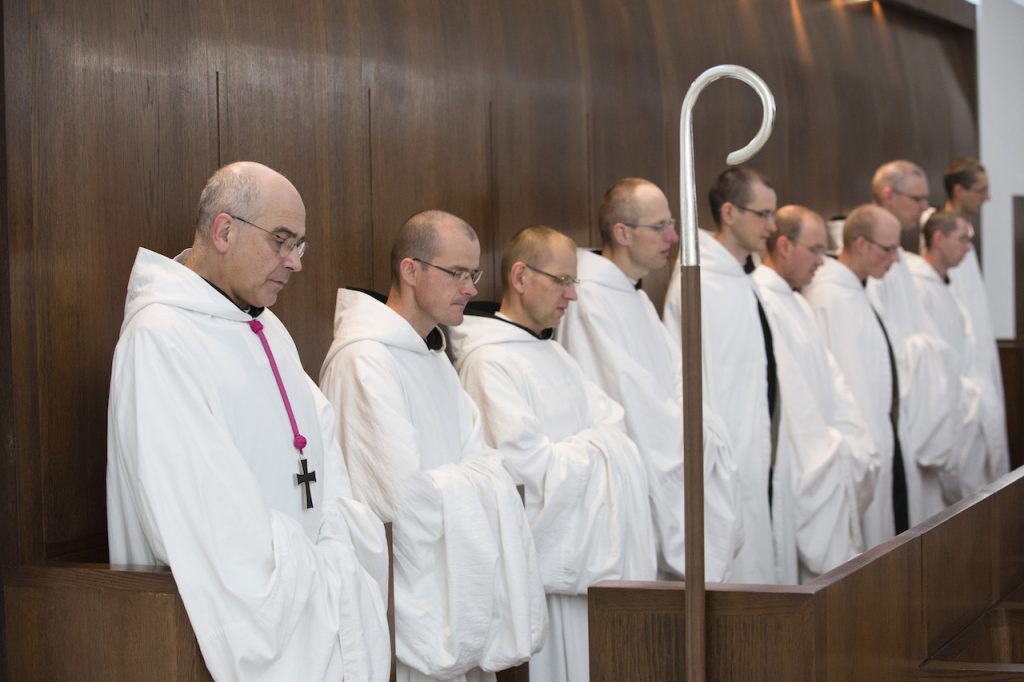How the monastery is organised

An abbey is like a ship with a captain, sailors and passengers that embark and disembark. Each person takes on an irreplaceable task that God has entrusted to that individual or to the community. Monks avoid tending to their number. What makes a community strong is not its size, but its trust in God.
“This is why I remind you to fan into flames the spiritual gift God gave you… For God did not give us a spirit of timidity or cowardice or fear, but a spirit of power and of love and of personal discipline”
(2 Timothy, 1:6-7)
Although the community’s purpose is spiritual, its organisation is like that of any other group. Relations between the brothers are like those of a family, centred around the Abbot, whose role is mainly paternal.
The Abbot is first and foremost a monk and, like all his brothers, organises his days around the Divine Office, reading, prayer and work. Saint Benedict asks him to teach, govern and set the example, to adapt to each of the brothers and respect the Rule. A task above human strength… The first Abbot of Nový Dvůr, Dom Samuel Lauras, who entered the Abbey of Sept-Fons in 1983 and was a superior of the community at the time of foundation, was elected by his brothers on 8 December 2011.
He is assisted by a prior and a few other appointees (the “monastery officers”). The prior, who is the superior in the Abbot’s absence, is in charge of the day-to-day organisation of communal life. He is assisted by the sub-prior.
The training of young brothers is entrusted to the master of novices, assisted by a sub-master.
The cellarer (treasurer), who manages the business that enables the monks to earn their living, is in charge of the economic aspects, assisted by the sub-cellarer for the functioning of the community (insurance, vehicles, maintenance, orders, etc.).
The community is now international: the oldest brother is Dutch and a few French monks decided to stay in Nový Dvůr, whilst most brothers are from Moravia or Bohemia, although Slovakia, Croatia and Slovenia are also represented. Occasionally, a Pole, Hungarian or German stays in the community with a view to discerning their vocation. The common language is Czech. Everyone manages to understand each other. Those who are able also learn French in order to benefit from the rich monastic and spiritual body of literature. The number of monks varies and although no one yet inhabits the cemetery, the day will come. With new arrivals and absentees, only the cook knows exactly how many brothers and guests need to be fed.